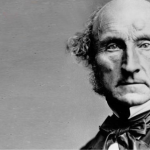Adams Center for Entrepreneurship
The Adams Center for Entrepreneurship at Florida Atlantic University was created to provide students with a “unique academic experience by fostering revolutionary intellectual growth beyond conventional wisdom in the pursuit and creation of sustainable solutions to business and social problems.” The Center focuses on interdisciplinary academics, community engagement, and venture creation, equipping FAU students of every major to be visionary leaders in their fields. Under the leadership of Director Kevin Cox, the Adams Center serves as an incubator for new ideas and vibrant academic discussion. Visit Page »
Madden Center for Value Creation
The Madden Center for Value Creation at Florida Atlantic University seeks to provide students with an intellectual foundation to become value creators in their communities and contribute to overall prosperity within our society. The Madden Center sponsors virtual and on-site conferences on research and topics within value creation, offers a remote learning certificate, and hosts a wide array of international visiting scholars. Its four current research areas include pharmaceutical systems, regulation and enterprise in the economy, higher education accountability, and entrepreneurship. The Madden Center also partners with the Civics Education Program, a local organization, to bring a symposium-style discussion of civics, ethics, economics, and literature to prisons in South Florida. Siri Terjesen serves as the executive director. Visit Page »
The Phil Smith Center for Free Enterprise
The Phil Smith Center for Free Enterprise aims to help undergraduate and graduate students understand the importance of free enterprise in our democratic society. The center, housed in the College of Business at Florida Atlantic University, supports chaired professorships, faculty research, educational programs, and on-campus events including a lecture series. The Phil Smith Center hosts courses in four disciplines—economics, finance, management, and marketing—and emphasizes the five values that guided the business philosophy of Phil Smith: integrity, respect, principled risk-taking, mutually beneficial exchange, and accountability. The center is currently directed by the dean of the College of Business, Andrew Garrison. Visit Page »









